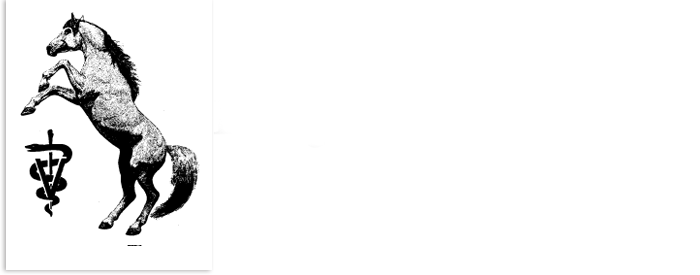Pyrantel Pamoate: A New Approach To De-worming
All horse owners have heard or been witness to equine colic. This broad term which means "abdominal pain" can range from any where from a little gas to a twisted intestine. It is the leading cause of premature death in horses. The leading cause of colic is parasites (worms). That is why it is so important to have a strong parasite control program. While there are several ways to successfully control parasites a relatively new player in this arena is Pyrantel Pamoate pellets. These pellets come in twenty five pound buckets which last for 3 to 4 months. The de-worming medication is mixed into alfalfa pellets. By feeding this daily your horse receives a small dose of pyrantel tartate, the active ingredient, ridding your horse of all the parasites accumulated in the past 24 hours.
Now that Pyrantel Pamoate has been available for a few years, experience with it has begun to accumulate. In my practice, I have used it with three groups of horses. The first is older horses who cannot keep their weight on. The second group is horses with a history of frequent colic episodes. The third group is performance horses whose owners want to maximize their horses condition.
Researchers investigated the use of Pyrantel Pamoate in relation to small strongyles. The larger strongyles are the more well know "blood worms" whose migration within the vessels leading to the intestines have long been implicated in acute colic. Their relatives, the small strongyles, are more insidious in nature. Large infections with small strongyles are often responsible for chronic debility, poor nutrition and some clinical disease. Researchers showed that by feeding Pyrantel Pamoate on a daily basis they were able to dramatically reduce egg counts in the manure. Examination both grossly and under a microscopic revealed inflammation of the intestinal lining to be dramatically reduced and the number of encysted larva significantly smaller in the group given Pyrantel Pamoate. In addition, despite the fact that both treated and untreated groups were put on the same feeding program, the treated group show significantly greater weight gain.
In a second study, daily feeding of Pyrantel Pamoate was compared to every other month treatment with Ivermectin. The purpose of this study was to determine which method of parasite control was best for growing young horses. By the end of the 10 month trial the answer was clear. The Pyrantel Pamoate group gained more weight with less with less food.
My own clinical experience has shown that Pyrantel Pamoate helps older horses who have become somewhat thin put weight back on. These horses regain the look of a health horse which they had lost.
These two studies along with my own experience have convinced me that another step along the way of producing maximum condition in your horses can be daily administration of Pyrantel Pamoate. They also point out that infestation of worms may not show themselves with overt clinical disease. Instead in may show up as un-thriftiness and the need for more feed. For many Pyrantel Pamoate combined with twice yearly standard de-wormings will become the normal parasite control program.

